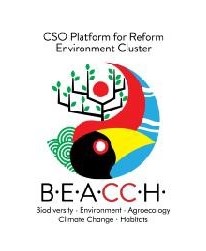PETALING JAYA, 27 March 2023: Logging activities in Ulu Baram will have devastating environmental consequences and severely impact the surrounding indigenous communities, say 47 organisations through a joint statement initiated by B.E.A.CC.H. and the CSO Platform for Reform Sarawak Chapter.
In response to the recent statements made by Telang Usan assemblyman Dennis Ngau, who claimed that logging posed no threat to the indigenous community in Baram, the organisations emphasize that such claims are unfounded.
Logging has significantly altered the environmental balance of the virgin forest and led to damage to the waterways, causing siltation, landslides, and flooding. Currently, an EIA report is not mandatory for clearing virgin forests in Sarawak and is only necessary for re-entry. The requirement and process for an EIA report should be standardised for all logging activities in Peninsular Malaysia, Sabah and Sarawak, with mandatory public participation as is the norm in Peninsular Malaysia.
Additionally, the absence of an EIA report also raises questions about whether communities in the area were consulted and if a Free Prior and Informed Consent (FPIC) process was undertaken as part of the public participation process for activities in their area. The FPIC process allows indigenous communities to give or withhold consent to a project that may affect them or their areas.
The lack of both the EIA and FPIC process raises doubts over the comments made by Ngau on communities welcoming the logging activities.
Local communities are the eyes and ears of the locality, providing insights necessary to ensure the ecological balance and the social and cultural landscape remain protected at all costs. Additionally, as inhabitants of the area, it is imperative that they understand the impact and the consequences of the project with free access to transparent information.
Disasters brought on by human activity – land clearing and logging have plagued the country in the form of various natural disasters. It is time for Malaysia to adopt standard legislation concerning forest protection to meet the nation’s pledge during the Rio Earth Summit 1992 to maintain at least 50% of its natural forest cover.
In light of the recent floods, B.E.A.CC.H. conducted a pilot study on flood impact and community perceptions in Lower Baram, Sarawak. Baram district was used as a case study for riverine conservation. The aim was to develop a framework supporting and providing remedial action for the affected communities and the riverine areas.
Based on the study, it is recommended that:
- communities living along the riverine develop a flood-ready attitude and preparedness. Capacity building such as these would ultimately empower the inhabitants with the necessary skills and knowledge on support resources, helping them build resilience in the face of a disaster.
- government agencies involve local communities in developing disaster management policies and programmes. The incorporation of local knowledge and perspective facilitates a better understanding of contributing factors in the respective region and enables authorities to gain grounded insights for effective mitigation strategies.
These recommendations require serious consideration and implementation as a step towards necessary progress to protect native rights and the nation’s rich virgin forests.
Endorsed by the Following Civil Society Organisations
| B.E.A.CC.H. (Biodiversity, Environment, Agroecology, Climate Change and Habitat), Environmental Cluster of the CSO Platform for Reform |
| Sarawak Chapter of the CSO Platform for Reform |
| Terabai Kenyalang Heritage Association of Sarawak |
| SAVE Rivers |
| Keep Green Movement (KGM) |
| Independent Council of Natives (ICON) |
| Persatuan Pemeliharaan dan Pemuliharaan Alam Sekitar Sarawak (PELIHARA) |
| Sarawak Dayak Iban Association |
| Tropical Research and Conservation Centre (TRACC) |
| Jaringan Tanah Hak Adat Bangsa Asal Sarawak (Tahabas) |
| JOAS SARAWAK |
| Persatuan Dayak Sarawak (PEDAS) |
| Pertubuhan Hak Asasi Orang Asal Sarawak |
| PACOS Trust |
| Sabah AIDS support services association (KASIH) |
| Sabah Environmental Protection Association |
| Kelab Belia Generasi Pemenang Kampung Tempasuk |
| Advancing Knowledge in Democracy and Law |
| Agora Society Malaysia |
| Engineers Without Borders Malaysia (EWBM) |
| Pertubuhan Alam Sekitar Sejahtera Malaysia GRASS Malaysia |
| Sustainable Development Network Malaysia (SUSDEN Malaysia) |
| Treat Every Environment Special |
| Aliran |
| All Women’s Action Society (AWAM) |
| Association of Women Lawyers |
| Center for Orang Asli Concerns |
| Centre for Independent Journalism |
| Forum Kedaulatan Makanan Malaysia (FKMM) |
| Free Tree Society Kuala Lumpur |
| Gabungan Bertindak Malaysia |
| Gabungan Darurat Iklim Malaysia (GDIMY) |
| GERAK (Pergerakan Tenaga Akademik Malaysia) |
| Global Human Right Foundation Malaysia |
| Jaringan Ekologi dan Iklim (JEDI) |
| Jaringan Orang Asal SeMalaysia (JOAS) |
| Penang Forum |
| Persatuan Kesedaran dan Keadilan Iklim Malaysia (Klima Action Malaysia – KAMY) |
| Persatuan Sahabat Wanita Selangor |
| Pertubuhan Advokasi dan Kesejahteraan Pekak Malaysia |
| Pertubuhan Pelindung Khazanah Alam |
| Raleigh Sabah Society |
| Suara Rakyat Malaysia (SUARAM) |
| Tamil Foundation Malaysia |
| Tapang Rainforest Organisation |
| Teoh Beng Hock Trust for Democracy |
| Zero Waste Sabah |







